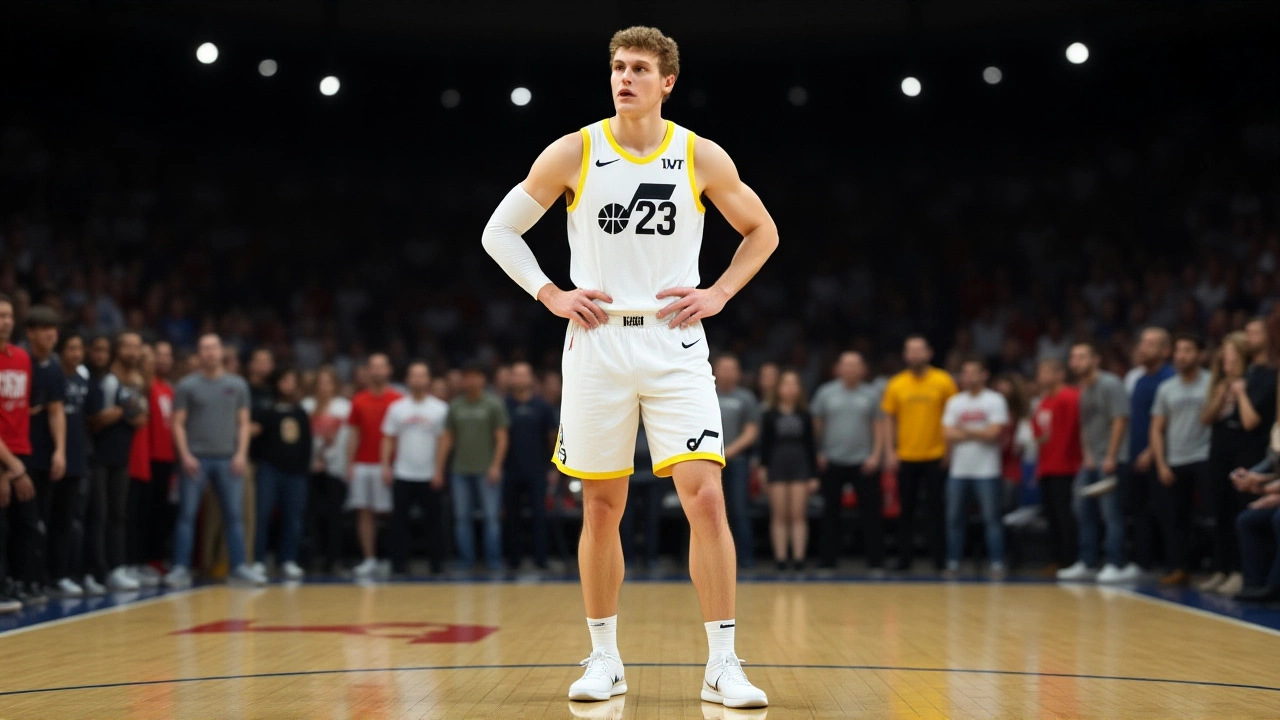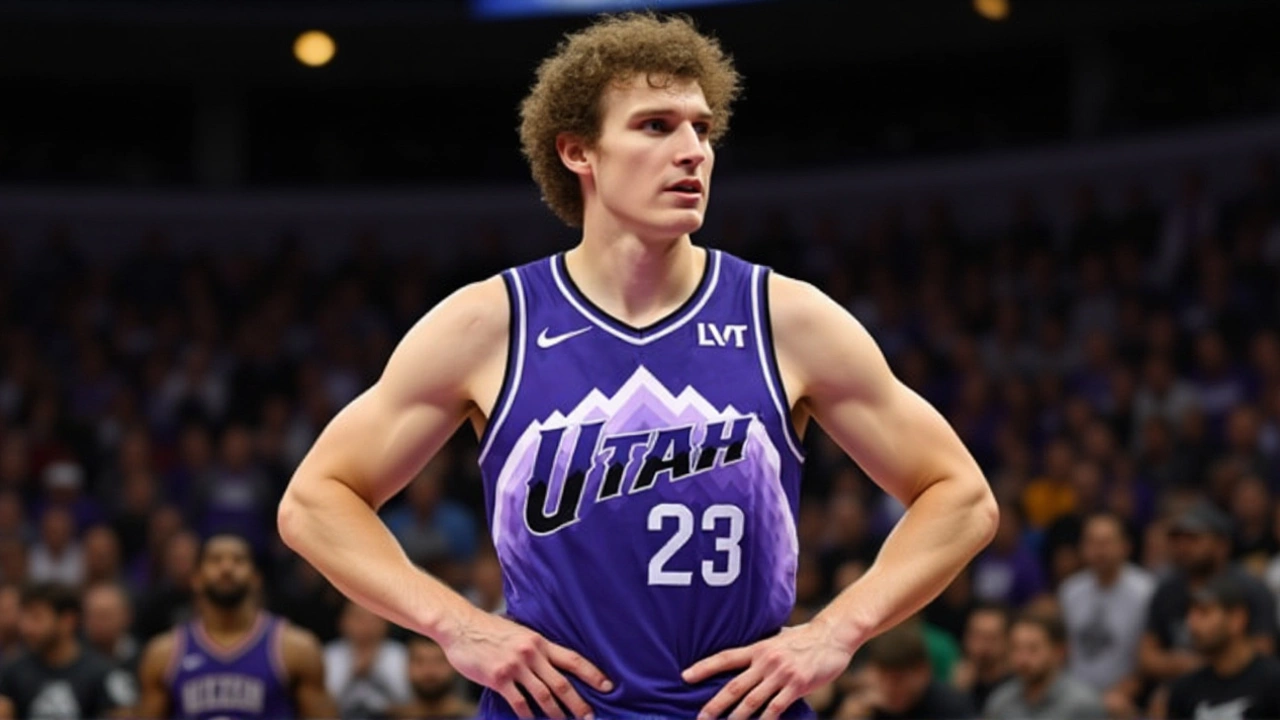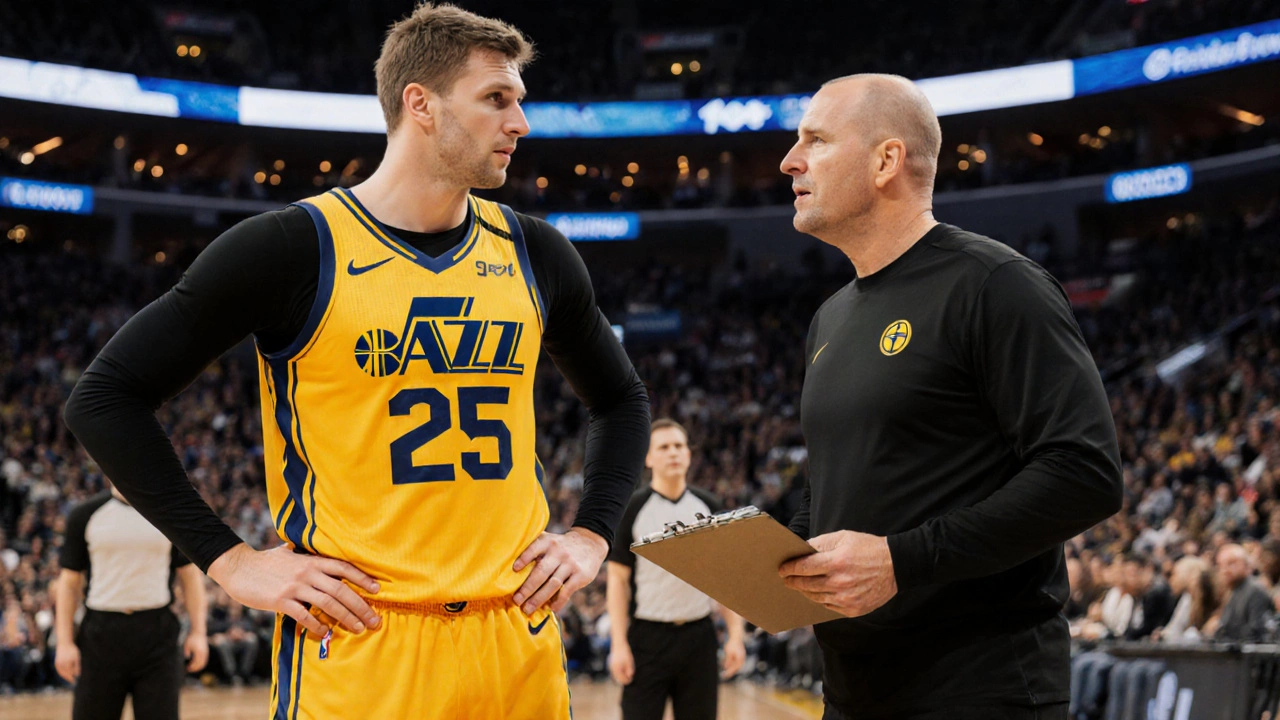When Lauri Markkanen dropped 51 points on the Phoenix Suns on October 2, 2025, he didn’t just remind everyone he’s still an elite scorer—he reignited a firestorm of NBA trade speculation. The Utah Jazz, long seen as a team in transition, now finds itself at the center of a high-stakes dilemma: do they trade their All-Star forward, or do they build around him after a stunning bounce-back start to the 2025-26 season? The answer, insiders say, may already be written—and it doesn’t include giving up Ausar Thompson.
Conflicting Signals, One Clear Message
On October 3, Chris Mannix of Sports Illustrated claimed the Jazz were "very open" to moving Markkanen. But two days later, Jake Fischer of The Stein Line pulled back the curtain: the Jazz aren’t shopping him—they’re just fielding calls. Why the disconnect? Because Markkanen’s trade restriction, locked into his five-year, $195.8 million extension signed in 2023, expired this summer. Suddenly, he’s eligible. But eligibility doesn’t mean urgency. The Jazz’s front office, led by Danny Ainge, has spent the past two years rebuilding with young talent and draft equity. They’re not in a panic. They’re in a position to be selective. And they know Markkanen’s value has spiked—after averaging just 19.0 points in a sluggish 2024-25 season, he’s averaging 34.7 points and eight rebounds through three games in 2025-26. That’s not a fluke. That’s a statement.The Pistons’ Dream and the Unmovable Obstacle
The Detroit Pistons are the most talked-about suitor. After their best season since 2008 in 2024-25, they’re hungry for a second star to pair with Jaden Ivey and Cade Cunningham. Bill Simmons, on his October 7 podcast with Michael Pina, argued that if the Jazz were serious, they’d demand Thompson—along with Ivey and three first-round picks. "That’s the price," Simmons said. But Pina, a veteran NBA analyst, didn’t blink. "Thompson is untradable," he replied. And he’s not alone. Pistons Powered reported on October 9 that Detroit’s front office considers Thompson’s ceiling higher than Markkanen’s proven peak. At 21, Thompson averaged 15.2 points, 6.1 rebounds, and 2.9 assists last season—while playing elite defense and showing flashes of All-Star potential. To trade him for a 27-year-old with four years left on a max contract? That’s not rebuilding. That’s surrendering your future for a rental. The math doesn’t add up for Detroit. Even if they offered Ivey, three picks, and a future second-rounder, the Jazz would likely say no. Because here’s the twist: the Jazz don’t need Thompson. They need assets. And Thompson isn’t an asset they can afford to lose.
Other Suitors, But No Better Offers
Beyond Detroit, the New Orleans Pelicans, Phoenix Suns, Philadelphia 76ers, and Charlotte Hornets have been mentioned as possible landing spots. The San Antonio Spurs are quietly interested too, according to Roundtable.io. But here’s the catch: none of them have the young, controllable talent the Jazz are demanding. Markkanen’s contract is a hurdle. Four years, $195.8 million. That’s not just a salary cap burden—it’s a long-term commitment. Teams like the Suns or Hornets might have the cap space, but they’re not built to absorb that kind of deal without giving up core players. And the Jazz? They’re not interested in taking on bad contracts or aging veterans. They want draft picks, prospects, and flexibility. The only team that might match that? The Pistons. And even they can’t offer what the Jazz truly want.Why This Matters Beyond the Trade Market
Markkanen’s 51-point game against Phoenix put him in elite company—joining Karl Malone, Adrian Dantley, and Pete Maravich as the only Jazz players to score 50+ in a regular-season game. (Donovan Mitchell did it twice—in the playoffs.) That kind of performance doesn’t happen by accident. It’s the product of a player rediscovering his identity after a down year. In 2022-23, Markkanen won Most Improved Player with 25.6 points per game. Last season, he dropped to 19.0. This year? He’s back—more aggressive, more confident, more efficient. His 38.0% three-point shooting over three seasons in Utah proves he’s not a one-dimensional scorer. He’s a modern big who can stretch the floor, handle the ball, and finish at the rim. He’s exactly the kind of player who can anchor a contender. But the Jazz aren’t trying to contend yet. They’re trying to build sustainably. And that means holding onto their best young assets—even if it means keeping Markkanen.
What’s Next?
The Jazz won’t trade Markkanen unless they get a haul that reshapes their future. That means multiple first-round picks, a high-upside prospect under 23, and no salary mismatches. So far, no team has come close. The Pistons’ interest is real—but Thompson is their crown jewel. The Spurs? They’re rebuilding too. The Hornets? They’re stuck in cap purgatory. Markkanen’s next few games will be telling. If he keeps scoring 30+ with efficiency, the trade rumors will die. If he cools off, the pressure to move him might return. But one thing is certain: the Jazz aren’t desperate. And they’re not going to give away their future for a star who’s already on the other side of his prime.Frequently Asked Questions
Why is Ausar Thompson considered untradable by the Pistons?
The Pistons view Thompson, 21, as a potential All-Star-caliber two-way wing with a ceiling higher than Markkanen’s established level. He averaged 15.2 points, 6.1 rebounds, and 2.9 assists in 2024-25 while playing elite perimeter defense. To trade him for a 27-year-old on a max deal—even one as talented as Markkanen—would represent a massive downgrade in long-term potential, which Detroit’s front office refuses to accept.
Could the Jazz trade Markkanen for just draft picks?
It’s unlikely. Markkanen’s $195.8 million contract is too large to move without taking back comparable salary. The NBA’s trade rules require teams to stay within 125% + $100,000 of each other’s salaries. So any deal would need to include at least one player earning $15M+ annually, meaning the Jazz can’t just get picks—they’d need to include a salary match, which limits their options.
What does Markkanen’s 34.7-point average mean for his future?
His early-season surge—34.7 points, 8 rebounds in three games—is the best start of his career and suggests he’s fully recovered from his 2024-25 slump. If he sustains this, he’ll be a strong candidate for All-NBA honors and could command a supermax extension. But if it fades, it may signal a temporary hot streak. Either way, it’s given the Jazz leverage: they can wait for the right offer.
Why is Danny Ainge being so cautious with Markkanen’s trade value?
Ainge has built the Jazz’s rebuild around youth and draft capital, not veteran stars. He’s watched teams like the Thunder and Grizzlies succeed by hoarding assets. Giving up Thompson or a top-5 protected pick for a 27-year-old—even one as good as Markkanen—would contradict that philosophy. He’s betting that the Jazz’s future lies in developing talent, not chasing stars.
Is there any scenario where Markkanen gets traded this season?
Only if a team like the Spurs or Pelicans offer a package including a young player under 23 (like Zach Edey or Trey Murphy), two first-round picks, and a salary match. But even then, the Jazz would likely hold out for a better deal. The most probable outcome? Markkanen stays in Utah, plays like an All-Star, and signs an extension in 2026.
